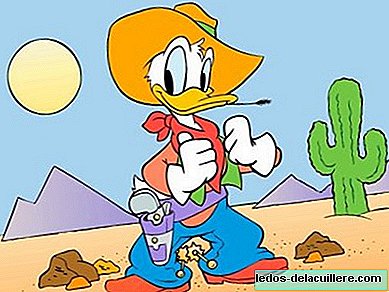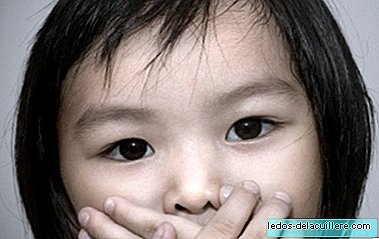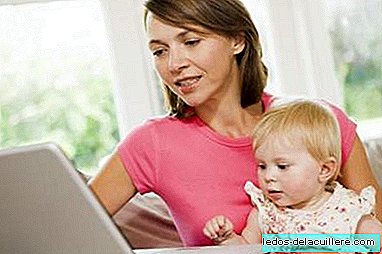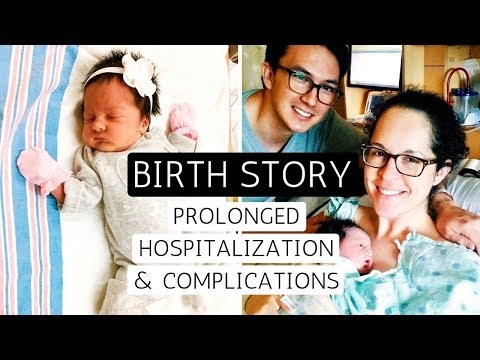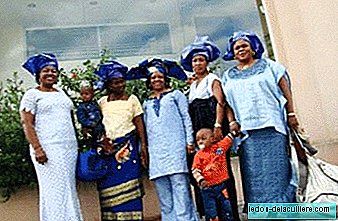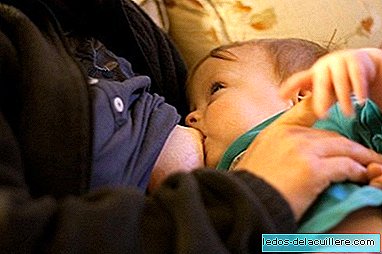
"Breastfeeding is the natural and healthiest way to feed babies. The World Health Organization (WHO) and numerous national and international scientific organizations (including the Spanish Association of Pediatrics) recommend and encourage exclusive breastfeeding the first six months of life and continue breastfeeding on demand, along with other foods, up to 2 years or more, depending on the child and mother wish".
Sometimes the news about the impediments that are placed on mothers to breastfeed in public places, hinder breastfeeding and come before as an obstacle, discouraging future mothers. Therefore, the Breastfeeding Committee (of the Spanish Association of Pediatrics), disseminates valid and proven information with the aim of giving security to mothers who breastfeed or plan to do so when the baby is born.
Children breastfeed when they are hungry, which is called breastfeeding on demand. In this way, milk production is regulated according to the needs of the child, milk intake is assured at the beginning and end of the intake, whose composition is different, and a good emptying of the breast is achieved, preventing milk from accumulating and may cause engorgement or mastitisThis alone justifies that mothers can breastfeed in public places if necessary, since the family must combine their daily activities with breastfeeding the baby. The attitude of limiting (or trying to avoid) the act of breastfeeding in certain places, hinders the daily lives of families, and violates the right of babies to be breastfed.
The primary function of the breasts
In most cultures, they are considered in terms of their primary function, that is, they are the organs of milk production to feed the children, however in so-called "advanced" societies, they have acquired a sexual connotation promoted by content in different media, and for the representation that some general publicity campaigns about the woman's body.
Lactating in public should not be seen as obscene or sexual, nor something that should be hidden or restricted. This attitude represents a obstacle to continuing breastfeeding and discourages future mothers who may see their decision to feed their babies to the breast changed due to the social difficulties that this entails.
Much more than a main function
Breastfeeding is not just providing food: there are many scientific evidence about the physical and psychological health benefits of children and mothers, not to mention that it can reduce health spending. Among other findings, it has been observed that the benefits of breastfeeding have a dose - response relationship: the longer the duration of breastfeeding, the lower the incidence of diseases.
In addition, it is the best way to favor a close relationship between mother and child, and the continuity of the emotional bond initiated during pregnancy. Hopefully, therefore, society understands the unquestionable value of protecting, supporting and promoting breastfeeding.
Breastfeeding: anywhere
Many children, in addition to food, seek comfort in their mother's chest. A baby that cries and that demands to be breastfed needs her mother. Delaying unnecessarily the moment of taking causes avoidable suffering for both the baby and his mother.
On the other hand, during breastfeeding, the mother can and should have a normal life with her baby, which includes frequenting public places: means of transport, swimming pools, restaurants, museums, shopping centers, etc. Breastfeeding does not work with pre-established schedules, so it is common for the baby to need to breastfeed in one of those places and it is the responsibility of the whole society to allow him to do so freely.
What happens to breastfeeding rooms?
Its goal is to provide a secluded, intimate and comfortable place to feed babies, but its use cannot be mandatory, in other words: no one can indicate to a mother who is breastfeeding in a shopping center, that she must retire to the breastfeeding room to continue doing so, yes, the option is valid for anyone who wants it.
I personally do not like them, although it is appreciated that they exist for mothers who want privacy, and would be expected to be pleasant and comfortable places. As my little daughter is now seven and a half years old, I don't know if things will have changed, but the two nursing rooms I visited (not to breastfeed, but to change the diaper) while they were babies, were places that smelled like plastic chairs (very uncomfortable), lacked natural light, and did not have any decoration, so, I wish that today the environment within them is taken care of a little more.
Some nursing rooms share the same space with the baby changing table or bathroom, which can be uncomfortable for mothers and unhealthy for children. On the other hand, many public places do not have these spaces, so the mother can be forced to Choose between the crying of your baby, the conflict with those responsible for the place or give up life in public during the period of breastfeeding (period that can last several years).
In my opinion, the dilemma that is intended is unnatural and contrary to a society that aims to foster coexistence. I really do not understand the poor tolerance to crying of babies, when we often run into adults who raise their voices above the limits of moderation, or when we are in places where loudness or ambient music makes it difficult greatly communication.
And another observation that I would like to make about it, is that we would all win with comprehensive and respectful attitudes, which include not interfering when a mother breastfeeds (avoiding thoughts that predispose us against), and have greater empathy towards the mothers of babies who are restless or crying (come on, do what we would like them to do with us if we are upset or sad: understand and act accordingly).
All children, regardless of their age, they have the right to be breastfed every time they need it, and their mothers have the right to be able to do it anytime, anywhere. Let us work to achieve a change in attitude in society so that we are all able to understand that breastfeeding is part of human nature, of our culture; so that the image of a mother breastfeeding is something so everyday that nobody shocks anyone.
It would be desirable that as in other countries,the necessary measures (educational and legislative) are arbitrated so that both mothers and their children can exercise that right in the way and place they need. With this, we will not only benefit children and mothers but the whole society.


